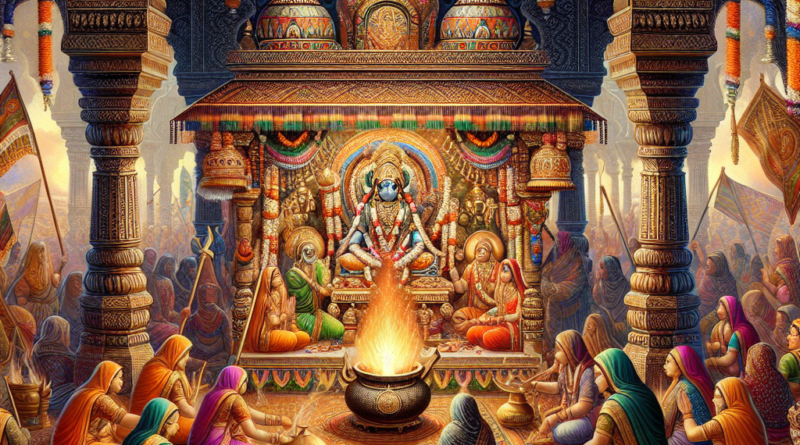Sacred Hindu Traditions: Rituals for Spiritual Awakening
Title: Exploring the Rich Tapestry of Hindu Rituals: A Blend of Tradition and Rajput Culture
Introduction:
Hindu rituals are an integral part of the rich tapestry of Hindu culture, encompassing a diverse range of practices that have been passed down through generations. These rituals hold deep cultural, spiritual, and social significance, reflecting the beliefs and values of the Hindu community. In the context of Rajput culture, these rituals take on a unique flavor, blending the traditions of Hinduism with the valor and heritage of the Rajput warrior clans. This article delves into the historical roots and contemporary relevance of Hindu rituals, with a focus on their significance within the context of Rajput culture.
Historical Context:
Hindu rituals have ancient origins, dating back thousands of years to the Vedic period. The Vedas, the sacred texts of Hinduism, contain hymns and rituals that were performed by the early Aryans to connect with the divine forces of the universe. Over time, these rituals evolved and diversified, encompassing a wide range of ceremonies and practices for various occasions, such as birth, marriage, death, and festivals.
In the context of Rajput culture, the practice of Hindu rituals is deeply intertwined with the ethos of honor, valor, and loyalty that defines the Rajput warrior clans. Rituals such as the Rajputana weddings, which are elaborate and steeped in tradition, symbolize the union of two families and the continuation of lineage. The rituals associated with Rajput warriors, such as the worship of weapons and horses, reflect their martial heritage and reverence for the art of warfare.
Contemporary Relevance:
In contemporary times, Hindu rituals continue to play a significant role in the lives of millions of Hindus around the world. These rituals serve as a means of connecting with the divine, seeking blessings for prosperity and well-being, and fostering a sense of community and cultural identity. In the context of Rajput culture, the practice of Hindu rituals remains a vital link to the glorious past of the Rajput warrior clans, keeping alive their traditions and values for future generations.
One of the key aspects of Hindu rituals is the concept of dharma, or duty, which guides individuals in their moral and ethical conduct. Through the performance of rituals such as daily prayers, offerings to deities, and observance of festivals, Hindus seek to fulfill their dharma and lead a righteous life. This sense of duty is particularly emphasized in Rajput culture, where honor, loyalty, and courage are held in high esteem.
Rituals such as the Aarti ceremony, where a lamp is waved in front of a deity, symbolize the offering of light, purity, and devotion. This practice is believed to dispel darkness and ignorance, bringing forth wisdom and spiritual enlightenment. In Rajput culture, the Aarti ceremony may also be performed with weapons, signifying the warrior spirit and readiness to defend one’s honor and homeland.
Another important aspect of Hindu rituals is the observance of festivals, which mark auspicious occasions and celebrate the diversity of Hindu deities and traditions. Festivals such as Diwali, Holi, and Navaratri are widely celebrated across India and the world, bringing communities together in joy and festivity. In Rajput culture, festivals like Teej and Gangaur hold special significance, honoring the bond between husband and wife and celebrating the divine feminine energy.
Conclusion:
In conclusion, Hindu rituals are a vibrant tapestry of tradition and cultural significance, reflecting the deep spiritual and social values of the Hindu community. In the context of Rajput culture, these rituals take on a unique flavor, blending the heritage of the Rajput warrior clans with the timeless practices of Hinduism. As we continue to navigate the complexities of the modern world, the practice of Hindu rituals serves as a guiding light, connecting us to our roots and instilling a sense of unity, devotion, and duty.

